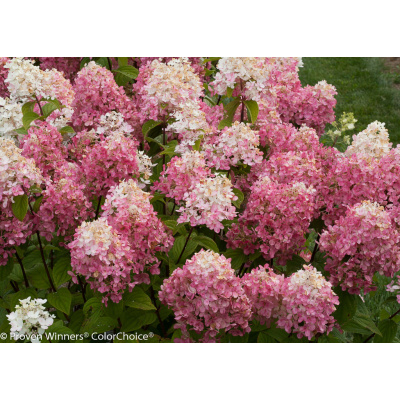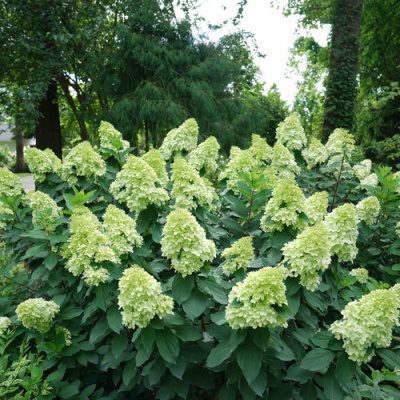Description
 Buxus ‘Green Mountain’
Buxus ‘Green Mountain’
‘Green Mountain’ is a dense, upright, evergreen boxwood that typically grows to 2-3′ tall over the first 10 years. This is a slow-growing hybrid shrub that may eventually mature to as much as 5-7′ tall. It was introduced by Sheridan Nurseries of Oakville, Ontario, Canada in the mid-1960s as part of the Sheridan Series. Parents are thought to be B. sempervirens ‘Suffruticosa’ (female) and B. sinica var. insularis (male). Smooth-margined, narrow-elliptic leaves (to 3/4″ long) are glossy dark green. Foliage may acquire bronze tones in winter. Small, somewhat inconspicuous, apetulous, greenish-cream flowers in terminal and axillary clusters bloom in April and May. Genus name comes from an old Latin name. Common name of boxwood is in reference to the prior use of the wood to make boxes. Another theory on common name is that the name is in reference to young plant stems which are quadrangular
Common Name: boxwood
Type: Broadleaf evergreen
Family: Buxaceae
Zone: 5 to 9
Height: 3.00 to 5.00 feet
Spread: 2.00 to 3.00 feet
Bloom Time: April to May
Bloom Description: Greenish-cream
Sun: Full sun to part shade
Water: Medium
Maintenance: Medium
Suggested Use: Hedge
Flower: Insignificant
Leaf: Evergreen
Other: Winter Interest
Tolerate: Rabbit, Deer



Reviews
There are no reviews yet.